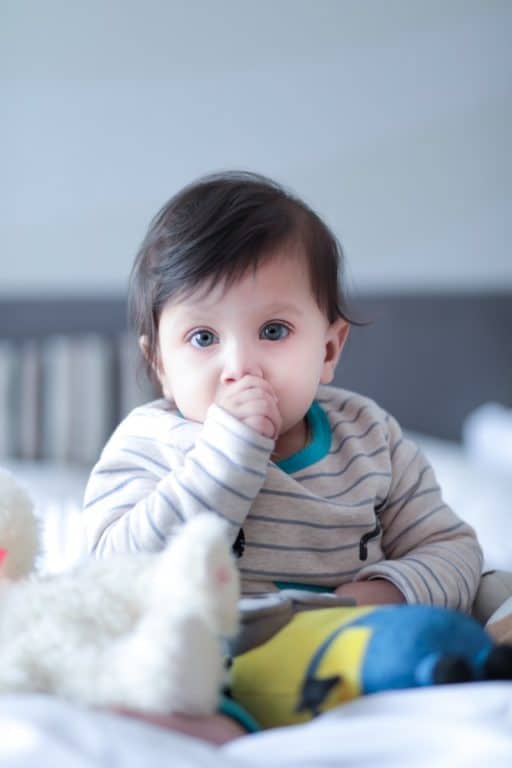If you’ve recently had a baby in Louisville, before you left the hospital your newborn was given a hearing screening. This is crucial in detecting hearing loss early and preparing infants and their parents for intervention services that are necessary to ensure they succeed.
The Importance of Early Intervention

The vast majority of babies in Kentucky and across the U.S. receive hearing screenings within the first few days of birth — usually before they are discharged to go home.
In 2000, the Federal government established a goal of having all infants screened for hearing loss within their first month of life, and to diagnose all cases of newborn hearing loss by the age of three months. As of 2016, 98 percent of newborns underwent a hearing screening, according to the Centers for Disease Control and Prevention.
Newborn Hearing Screeners
The test is quick and painless, and most babies sleep right through it. A hearing screener usually visits the new mother’s hospital room and tests the baby in a bassinet or crib. A quiet environment and calm baby ensure the best results, so the baby is often swaddled and rocked to sleep.
A probe resembling a tiny earbud is placed in the ear; it emits a clicking noise that stimulates tiny hair cells in the baby’s cochlea, causing them to vibrate. Newborns with normal hearing will produce echoes called otoacoustic emissions in response to these vibrations. The measurements take about five to seven minutes per ear.
What happens if a baby fails a newborn hearing screener?
Babies who pass — most of them do — are then free to go home (once the mother has been cleared for discharge). Those who do not pass are referred for a second round of screening as soon as possible, usually within a few days or weeks.
The CDC estimates that 1.7 percent of babies were referred for additional testing in 2016, but not all of them have hearing loss. Other reasons, such as residual fluid from birth or debris in the ears, might have prevented them from passing on the first go-round.
Why is early intervention critical for a newborn with hearing loss?
Two to three out of every 1,000 infants in Louisville are born with some degree of hearing loss. Early intervention is crucial for children with hearing loss, prompting the government to set a goal of having children with hearing loss enrolled in a program by the time they are six months old.
Before newborn hearing screenings became standard, it could take parents two to three years to realize their child had a hearing problem; by that time, they have lost a crucial two-year window of speech-language development.
Those early years are especially important because if the neurons in the child’s brain used for hearing and spoken language aren’t activated, they’ll be used elsewhere. This can lead to long-term problems with speech-language development; the child is likely to suffer social and academic delays once they enter grade school.
Another benefit of newborn hearing screenings: the earlier a hearing loss is identified, the more easily a child will adapt to treatment with hearing aids or cochlear implants.
If your baby has been referred for additional newborn testing and a problem is identified, Heuser Hearing Institute in Louisville provides intervention and hearing health care services for children and adults with hearing, speech and balance disorders. Contact an audiologist for more information.